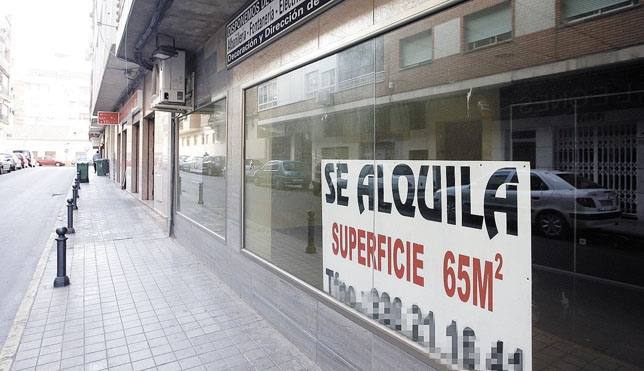1.- Last 15 March, Royal Decree 463/2020 declaring the state of alarm in order to handle the health crisis caused by COVID-19 was enacted, following the provisions approved by the Organic Law 4/1981 that enables the implementation of extraordinary states of emergency.
2.- Among the measures approved by Royal Decree, is the temporary suspension of several economic activities as established in article 10. Specifically, commercial, retail and leisure activities, hospitality businesses and other equivalents. In other words, this provision suspends the opening of retail and leisure businesses (except for those expressly allowed) as well as some other activities included in the Royal Decree Annex. Restaurants and bars shall remain close to the public, but food-delivery is permitted.
3.- As a consequence of the above, many companies and small businesses have found that their main activity has been suspended and therefore obliged to close their establishments and commercial premises. Many other businesses that haven’t been suspended have also found themselves in the same situation as their activities have been reduced as a consequence of the state of alarm measures, having to temporarily close down. Following this, if the place is owned by the business the consequences are mainly limited to lack of revenue (which is bad enough), whereas if they are renting the space where the activity is taking place, the questions arises by itself: what consequences can these business face regarding the obligations established in the lease contract, especially regarding rent?
In our opinion this question doesn’t have just one possible answer. This will vary depending on each situation (note that the solution to a variable-rent case will differ to the one with a fixed-rent). Due to this, the aim of this note isn’t to provide a single standardised response applicable to all cases, but simply to give some insight regarding the possible answers.
4.- Regarding the compulsory closing down of some businesses due to the state of alarm, one possible solution is the applicability of the so-named “rebus sic stantibus” clause. Under this, the commercial tenant could request a reduction on the agreed rent. The clause is not enforced by any laws, but created by case law. Nevertheless, its applicability has always been very restrictive, even during the past financial crisis (although as expected, a rise on its application was observed). The application of the “rebus sic stantibus” clause by the Courts of Justice, means to impose a non-agreed change in the terms of the contract, and therefore a violation of the principle “pacta sunt servanda” (on what’s agreed, you’re liable), reason why it’s very restrictive. The Supreme Court has established that for this clause to operate “it is required as essential premise that between the circumstances existent at the moment of compliance and agreement must have been an extraordinary change, a disproportion beyond all foresight between the interests of the parts that truly disturbs the contract by compromising the balance of what was exchanged, being verified by the sudden change of circumstances definitively unexpected”.
One could think that the state of alarm is not a situation easily foreseen when a lease contract is under negotiation, therefore, in accordance to what was stated, an eventual application of the clause “rebus sic stantibus” in these scenarios might be feasible. However, this doesn’t mean that due to the exceptional situation the clause would apply automatically, but as stated before, it’s necessary to analyse case by case, as there are some areas in which is common to find terms in lease contracts that allow a change in the rent, adjusting it to the revenue perceived by the commercial tenant, and therefore, the acceptance of the applicability of the “rebus” clause by the Courts in these cases is more problematic.
Furthermore, as we anticipated, the state of alarm declared is enabled by the Organic Law 4/1981 that literally says in its article 3: “whoever, as a consequence of the acts and norms adopted during the states of emergency, is affected in his rights, assets, or as an individual for non-liable actions, will have the right to be compensated in accordance to what is provided in the law”.
The article doesn’t specify how this compensation shall be claimed, circumstance that should also be analysed, but it’s clear that a right to get a compensation for any damage suffered as a direct consequence of the state of alarm, exists. If a business closes down due to the state of alarm, it’s legitimate to wonder if the mainly affected in the landlord of the commercial tenant; and if it’s the tenant, we could wonder if the possibility of an eventual compensation is incompatible with the application of the “rebus sic stantibus” clause.
5.- As stated before, these notes are referred to the cases in which the close down has been directly imposed by the Royal Decree 463/2020. However, in the current state of alarm we also find, for instance, business that, although aren’t directly obliged to shut down, their activity has been severely affected as a consequence of other types of measures imposed by the state of alarm. Note that, the Royal Decree also restrains the freedom of movement, allowing it just in the cases established in article 7. This means that we can find businesses not affected directly by the suspension, but whose potential clients can’t go to the premises in person, so they decide to close down during the state of alarm. From this point of view, it would also be applicable what we have stated, highlighting once more, the necessity of analysing each case individually, even more, taking into account that as the activity is not suspended, telecommuting could be an option.
6.- In conclusion, we found ourselves in a situation that, without doubt, will cause a burst in litigation (unless a new regulation on this matter is enforced in the short term) on which the different scenarios can be even more numerous than initially expected, having to analyse them thoroughly case by case.

